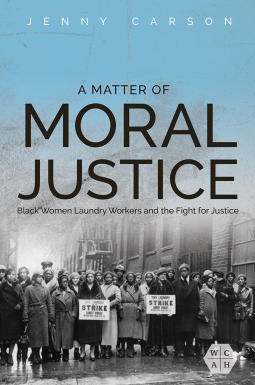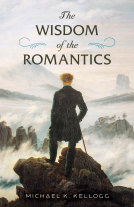
A Matter of Moral Justice
Black Women Laundry Workers and the Fight for Justice
by Jenny Carson
This title was previously available on NetGalley and is now archived.
Send NetGalley books directly to your Kindle or Kindle app
1
To read on a Kindle or Kindle app, please add kindle@netgalley.com as an approved email address to receive files in your Amazon account. Click here for step-by-step instructions.
2
Also find your Kindle email address within your Amazon account, and enter it here.
Pub Date 13 Jul 2021 | Archive Date 10 Aug 2021
Talking about this book? Use #AMatterofMoralJustice #NetGalley. More hashtag tips!
Description
Like thousands of African American women, Charlotte Adelmond and Dollie Robinson worked in New York’s power laundry industry in the 1930s. Jenny Carson tells the story of how substandard working conditions, racial and gender discrimination, and poor pay drove them to help unionize the city’s laundry workers. Laundry work opened a door for African American women to enter industry, and their numbers allowed women like Adelmond and Robinson to join the vanguard of a successful unionization effort. But an affiliation with the powerful Congress of Industrial Organizations (CIO) transformed the union from a radical, community-based institution into a bureaucratic organization led by men. It also launched a difficult battle to secure economic and social justice for the mostly women and people of color in the plants. As Carson shows, this local struggle highlighted how race and gender shaped worker conditions, labor organizing, and union politics across the country in the twentieth century.
Meticulous and engaging, A Matter of Moral Justice examines the role of African American and radical women activists and their collisions with labor organizing and union politics.
Advance Praise
"With this beautifully written, emotionally powerful book, Jennifer Carson has rescued the history of organizing among African-American and Afro-Caribbean laundry workers from the shadows. Power laundries were the largest industrial employer of Black women in the U.S. in the first half of the twentieth century, but professional historians have paid little attention to these workers' long campaigns for justice. Carson narrates this crucial history with grace and verve, nuance and drama, centering the biographies of the remarkable organizers Dollie Robinson and Charlotte Adelmond and their struggle to bring decent working conditions and union recognition to a labor force made up almost entirely of women of color. As Carson relates struggles between Black women organizers and white male union leaders, fruitful but fraught alliances with Jewish organizers in the Women’s Trade Union League and the Amalgamated Clothing Workers Union, she makes clear again and again how these movements were direct forebears of the Black Lives Matter and Fight for $15 movements. This history and its powerful actors are as relevant in 2020 as they have ever been. Brava."--Annelise Orleck, author of Rethinking American Women's Activism
"An engaging book on a workforce that has received surprisingly little attention from labor historians. Carson provides a highly readable analysis of how racialized and gendered were job assignments, union organizing campaigns, and labor politics."--Dennis Deslippe, author of Protesting Affirmative Action: The Struggle over Equality after the Civil Rights Revolution
Available Editions
| EDITION | Other Format |
| ISBN | 9780252085895 |
| PRICE | US$28.00 (USD) |
| PAGES | 312 |
Links
Featured Reviews
Carson has written a fantastic history of remarkable women and a remarkable movement. Adelmond and Robinson's stories are inspiring and emblematic of the struggles of so many women of color as they fought to gain security and equality in the workplace. Carson's research is remarkable and she succeeds brilliantly in bringing to life the stories of these women workers, as well as their fight within the broader labor movement. Her critiques of the male-dominated CIO are a necessary corrective to the dominant narrative about progressivism in the CIO. While certainly more committed to social justice than their AFL counterparts, Carson shows that the CIO was not necessarily the bastion of progress presented in the common historical narrative. Carson offers a brilliant feminist corrective. This is an important contribution to labor scholarship and a refreshingly inclusive study.
 Shannan H, Reviewer
Shannan H, Reviewer
A comprehensive look into politics and the laundry industry in the 1930. If you're a big fan of history, then this is a book you'd enjoy. Starting off as a dissertation, a fascinating historical read that is very well researched regarding laundry workers trying to gain equality in the workplace. It's a lot of information, but interesting and well researched.




